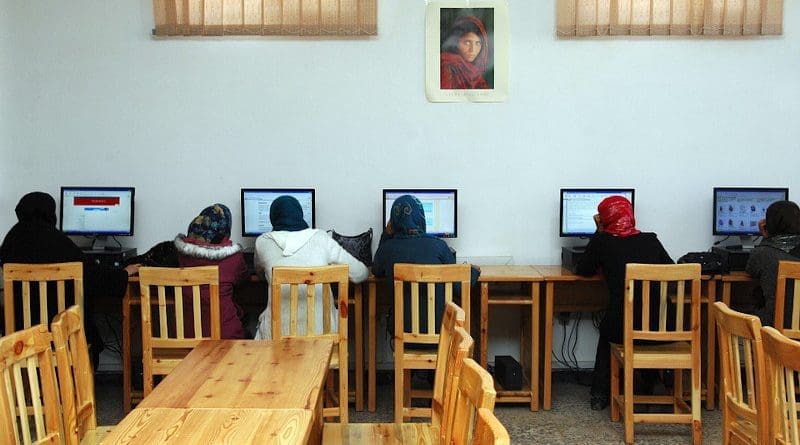The Crises Of Afghanistan And Ban On Education – OpEd
By Aqsa Rasheed
The Taliban leadership in Afghanistan sent a letter to all public and private institutions ordering them to halt the enrollment of women in universities until additional orders were given. The Taliban regime used violence to remove the protestors after hearing this news and seeing female students demonstrate for their legal rights on the road. Universities were compelled to maintain separate classrooms for male and female students after the Taliban administration seized control of Afghanistan in August.
In several government positions, women have been offered pay to stay at home instead of working. This restriction has caused the international community to think negatively about Afghanistan, which will make it more difficult for the Taliban to acquire international legitimacy for their administration.
Some women in Kabul have also demonstrated against this ban. “Today we come out on streets of Kabul to raise our voices against closer of girls’ university,“ a protestor from Kabul said. Women in Afghanistan now require a male guardian if they travel more than 48 kilometers. The Taliban has defended its action by claiming that they are protecting both the dignity of women and their own national interests.
While the Taliban’s decision to prohibit women from pursuing higher education has drawn criticism from Muslim nations, like Saudi Arabia, Turkey, and the United Arab Emirates, government officials are divided on the issue. As Rashid Khan, a cricketer, tweeted, “let Afghan females learn,” professors and athletes stood out for women against the Taliban’s decision. If that educational door is shut, Afghanistan will suffer serious repercussions.
There is no way around it: girls must be allowed to stay in school and women must be allowed to work and travel about freely. The International Committee responded to the prohibition with this statement. On the question of prohibiting girls from attending school, the Taliban leadership is divided; some are in favor and others are against it. Women are barred from travelling more than 48 miles, going to other public places without a male guardian, or working for a meagre income. The Taliban used violence against the protesters in an effort to break up the women’s demonstrations against the ban on education.
The Afghan people support education as well, particularly for university professors and other prominent personalities. Rashid Khan, a cricketer, recently tweeted, “Let the Afghan girls study,” as an example.
In addition, a statement requesting the Taliban to reconsider prohibiting women from enrolling in institutions was issued by civil rights and women’s rights advocates.
Students continue to hope that the Taliban will reverse its decision to prevent women from enrolling in college, but there is also a fair that if the same policies regarding women’s rights are implemented that were implemented by the Taliban in 1990, then both the future of women and Afghanistan will be doomed.
Aqsa Rasheed student , independent researcher in university of Balochistan and training in statecraft in UOB.

